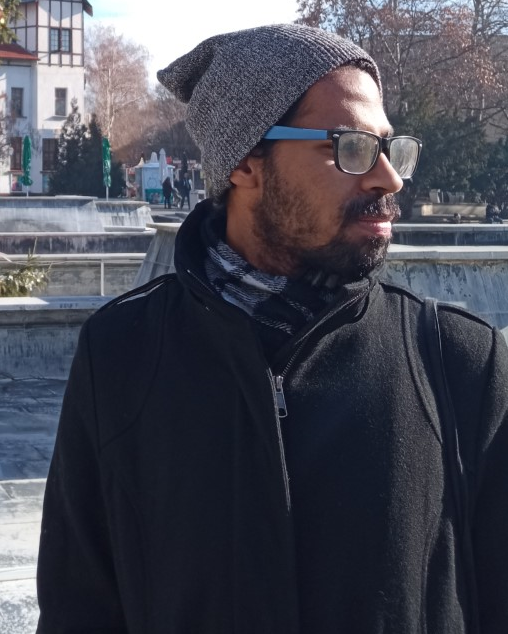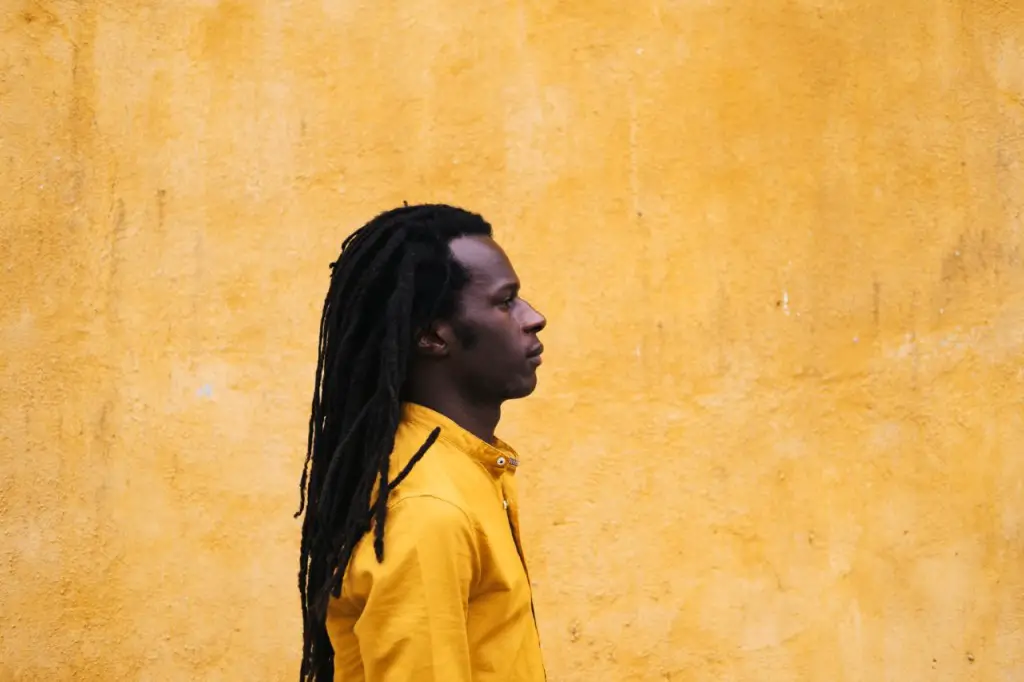All images courtesy of Ritchaz Cabral

By Fábio Moniz
fabiorubenmoniz@gmail.com
Ricardo Cabral, also known as Ritchaz Cabral, is a musician from Portugal, who takes his listeners on a ride through his own identity.
Cabral started mixing various genres such as hip-hop, kuduro, batuku, and others – a path he had started striving with a friend of his, Kéke, with whom he has played for ten years, and had even toured not only in Portugal, but also had had some gigs abroad. They had even won a place for them at the Novos Talentos Fnac 2008 contest – a Portuguese contest made available for new artists to show their place in music. They had also participated in some projects with the Associação Cultural Filho Único, an organization that promotes alternative music in Portugal.
Finding himself producing music at home, Cabral started producing for musicians and bands who had already strode some miles on the road, making an investment in his room, in Lisbon – the same room, where Cabral’s mother had to witness many people coming and going almost nonstop through the door. Later, after having played in several bands, Cabral focused on producing his own songs. Even while playing with other bands, he still continued composing his own pieces.

Besides his place in music, Cabral has been working on building his own musicality, by playing keyboard, bass guitar, and classical guitar, revisiting his influences – which he admits he had consumed, in Portugal, mainly Cape Verdean music. But even though revisiting those influences, mixed with other popular and urban songs, Cabral assumes that his music is the product of the specific reality of Portugal’s multiculturalism.
His music is mostly an imposition of his own personal identity, reflecting the modern times of human dynamics. Following this concept, in 2017, Cabral released his first solo album, Mal Famadu, which can be heard online. With this work he had the promotion of Music for All and the RDP Africa, allowing him to have a wider audience from both Portugal and Portuguese-speaking nations in Africa.
Identity, O dear identity!
Time elapsed, and difficulties had arisen, “Each in different dimensions,” Ritchaz tells us. Either for often being commonly seen as a “Black outsider” born in Portugal, therefore, to live in specific conditions or for his search of who he is. These have been some issues that have followed him throughout the times, and which will not go away so easily. But Cabral is very optimistic when it comes to these issues, aiming to accept and transform the present. He shares with us that, “Even though the old colonization had had some bad features such as racism,” it allowed a new identity to be born out of it; the same identity he is looking forward to putting into his music. “Black Portuguese people are those who know the Portuguese periphery better than no one,” Cabral tells us.
After colonization, and through all the heinous events and the ordeals that African people have gone through in the West, this new identity has bloomed; and this is the present Cabral has come to accept. And this is the same present he wants to live in in order to shape a new future with no borders, destroying the racial ideal that has been built on people’s heads. There’s the point of making mestizo music, imposing a new social understanding.
Studying to achieve a greater place and build a better future.
All of Cabral’s experiences led him to take a course on Sociology and Anthropology, in London, England, where Cabral is living at the moment. This means a temporary stop in his music, getting to acquire more knowledge on the topic, which has been a constant in his music. Cabral has always looked forward to sharing valuable messages with his listeners not only through the lyrics but also with the rhythmic and harmonic variety that he puts into his music. Just by the production of an afro mestizo kind of music, influenced mainly by the Cape-Verdean – a Portuguese ex-colony – traditional rhythms, Cabral is already sharing a message with people. The mixture exists, it’s the present we are living in.
It’s time for acceptance and time to show that people are no different from one another, “It is not easy to live from music, in Portugal,” Cabral tells us. He decided to have a pause in order to invest in his studies aiming to be able to have a mix of music and some source of social understanding, in his future. By living many experiences around the world, being in countries such as Turkey, South Africa, or Brazil, and also having traveled through Portugal from north to south, to Cabral, going around and leaving his place is not a problem for him. Being descendant to a people whose home has been always characterized as within the abroad, these trips around the world are a kind of mobile comfort.

From modernity to a neo-traditionalism.
One might expect African people to be more active in listening to Cabral’s compositions, but it does not work as such. Most of the African people who listen to Cabral’s music are those who still preserve some of the traditionalism of Cape Verdean musicality, from which Cabral takes some of his influences and applies in a new way to his own creations; and the elder people identify their roots in Cabral’s music. But the younger generation who appreciates Cabral’s music is mostly Western people who recognize and like the environment and the originality of African roots.
Even though Ritchaz Cabral is not an African citizen – but is of African descendant – he finds it amusing that the more traditional people accept his original and renewed African sonority.
And if he was able to go back in time, there is nothing he would change in his course. Not even in his youth would Cabral change a thing; all his experiences, his trips around the world, his autodidactic skills, and the variety of music and culture which he found in Lisbon. Ritchaz Cabral looks into creating from himself to everybody, trying to reach every people and uniting people, destroying ideological barriers, stereotypes, and existing preconcept. All this, music is able to achieve, and Ritchaz Cabral knows the power music holds and uses it the best way he can.
However, for the moment, he will focus on his studies in Sociology and Anthropology, not ever leaving music behind, “For music has always been part of myself,” as Cabral tells us, but, as he himself emphasized, “This stop is temporary.”
“Sharing. Sharing is the most important thing,” says Cabral. Listeners of his music know all too well that he does share something with us. Cabral shares with us a message he would like our readers to take with them forever; saying that, “People should not be afraid of getting to know things, of living new experiences, of being in contact with a new aesthetic, and of getting to know new people and new cultures.”
Every new experience is something from which individually people get to gain.
If the reading has left your ears tingling eagerly, hit this link to indulge in Ritchaz Cabral’s music.
– Fábio Moniz is a columnist for www.vwmusicrocks.com and may be reached at fabiorubenmoniz@gmail.com





Leave a Reply